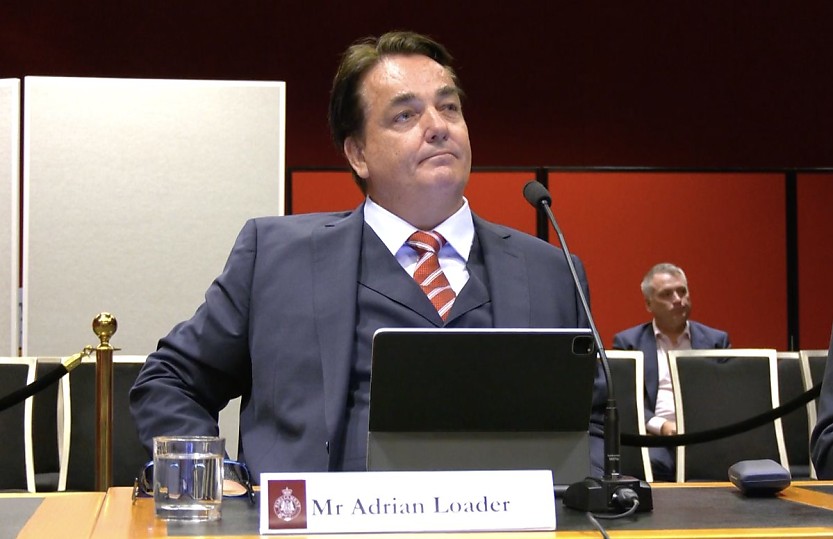Conflict ‘inherent’ for firms with public, private clients: Scyne

The PwC spin-off tells a parliamentary committee its mission is “purpose over profit” compared to other big four firms, which have failed to divest their government work.
Firms that consult for the public and private sector have “inherent” conflicts of interest that cannot be resolved unless they divest their government work like PwC, according to Scyne director Adrian Loader.
Mr Loader, who is also the co-founder of Allegro Funds, the private equity firm that purchased Scyne from PwC for $1, said the firm could only be “conflict-free” as a corporation without private clients.
“[Scyne] had to be its own corporate, rather than a partnership, and therefore a different legal entity. And it had to be conflict-free from private sector companies, because of the inherent conflict of interest,” he told a NSW upper house committee into consulting services on Monday.
When asked by Greens MP and committee chair Abigail Boyd whether this meant there was an inherent and existing conflict of interest in the other big accounting firms – EY, Deloitte and KPMG, which had yet to separate their government consulting arms - Mr Loader said “it goes further than that”.
Mr Loader singled out partners doing work “for both sides” as being “where the inherent conflict is”.
“Then the real question is, how do you manage it? And what are the ramifications for how you manage it? So therein lies, I think, the challenge,” he said.
The PwC spin-off became operational on 13 November and has since reapplied to provide services under the government’s central performance and management services scheme, according to Scyne’s NSW lead Diane Rutter.
However, committee members were unconvinced that the firm was any different to PwC after 100 former partners and 1,396 staff moved over in the wake of the tax leaks scandal.
“How can you be so sure that you've not imported some of that culture from PwC, that allowed that sort of rot to happen in the first place?” Ms Boyd asked.
Labor member Sarah Kaine said there were no accountability mechanisms for Scyne and that it would in “essence be marking your own homework as to whether you're meeting those expectations”.
Managing partner Richard Gwilyn told the committee that Scyne’s goal was to carry out “for-purpose work in a commercial manner” and it held itself to “different” standards that would see it refrain from pursuing “profit over purpose”.
“The ethics frameworks that we've put in place we do believe are different in the way in which we have looked at governance, the independent board members that we have in our organisation, and the standard that we are going to try and hold ourselves to is one that is different,” he said.
Despite Scyne’s best efforts to distance itself from controversy, Labor member Mark Buttigieg said an “inherent conflict, tension” remained in its business model to continue winning lucrative consulting contracts from the public sector.
“Irrespective of how good the policies are … if I’m doing work for the government and I'm in a business that's out to make profit, it is not in my interest to actually inculcate the processes, procedures, contacts, networks and expertise to the government sector to increase their capacity, because that will, by definition, reduce my market share,” he said.
Ms Boyd said: “You could have all the great intentions in the world. But ultimately, it's a profit-making vehicle. So, profit has to be your primary purpose.”
A submission from Scyne showed Allegro Funds as its majority shareholder with around 75 per cent of the business, with the remaining 25 per cent held by ex-PwC partners and directors.
As part of Scyne’s sale to Allegro, PwC novated existing government contracts to Scyne. According to PwC’s 2023 transparency report, government consulting business accounted for about $680 million, or 20 per cent of the firm’s revenue in FY2023.
Meanwhile, the TPB also released a compliance report yesterday that showed 1,210 PwC staff completed a mandatory tax and regulatory requirements training program, and said it would be continually updated to improve the management of conflicts of interest.
The report forms part of PwC’s ongoing compliance obligations after the TPB found it had breached the Tax Agents Services Act, namely subsection 30-10(5) of the Code of Professional Conduct, which mandates arrangements to manage conflicts of interest that arise in relation to activities as a registered tax agent.
About the author







